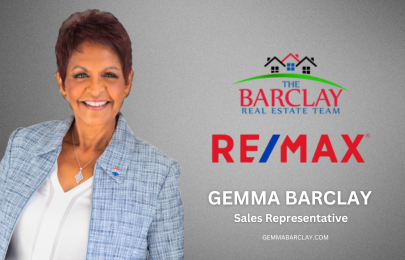Grow Your Wealth: The Benefits of Homebuying When Young
Building wealth through homeownership is one of the most tried ways to meet your financial goals in life.
Anyone capable of earning a paycheck can start building wealth through homeownership. But when it comes to age groups, the young have a distinct advantage if and when they can break into the housing market early, which we would like to touch on today. Today, we’re investigating the benefits of buying a home when you’re young in order to start building wealth.
Studies have found that when homeowners buy their home before the age of 35 they tend to be more set to retire by age 60, while lifelong renting on the other hand may delay retirement.
Clearly, the sooner you start paying your mortgage, the sooner it will be fully paid and financial freedom can be achieved. When approaching retirement, people tend to rely increasingly on their wealth instead of just their income to support their lifestyles. Failing to build housing wealth – which is the largest single source of wealth for most people – can be a big setback.
Becoming a homeowner when young can let you take control of the most expensive part of your life. While both rent and homeownership are going to cost you each month, only homeownership is going to give you equity and appreciation, and the potential to home hack and reduce your costs further, allowing for saving and investing.
Homeownership also can help build your credit, allowing you to become approved for another mortgage loan or line of credit, and as homeowners gain equity in their homes, they can refinance to purchase income-producing assets like rental properties.
Having a home fully paid off around the time you retire means only having to cover utilities, maintenance, and property tax, all while enjoying a space of your own. And there are also tax benefits you can reap all the while.
So what can you young adults out there do to try to break into the housing market and start building wealth?
1. Examine Your Cash Flow
First, you need to look at your cash flow. You need to know what your financial situation looks like. How much do you earn? How much are you saving? Are you saving? What is your credit score? There’s simply no way to get going without answering these questions.
The great thing is, talking with a financial lender or financial planner will help you figure out all of these things.
2. Calculate Your Price Range
Second, you’ll need to calculate your price range. You’ll need to be able to figure out how much in interest, property taxes, and insurance you can afford each month, and this means making a budget. And once again your financial lender can actually help you figure this out.
3. Build a Contingency Fund
Third, you should have a contingency fund built up. Homes inevitably will have repairs that need to take place. You may need a new roof and having $10,000-$15,000 in cash in case of emergency repairs is an excellent start.
That isn’t an easy amount of money to save up for somebody who may be recently out of school with a student loan. It can feel ambitious trying to build up your contingency fund. But if the roof starts to leak or appliances break, this will be a lifesaver. Start saving for your contingency fund simultaneously as you save for your down payment.
4. Make a Larger Down Payment (If Possible)
The fourth suggestion is to try to make a larger down payment. When you make a larger down payment you’ll end up paying less interest in the long run.
Before you buy you will need to make a concentrated effort to save as much as possible, because, in the long run, you probably won’t regret making a larger down payment.
5. Don’t Be An Emotional Buyer
Finally, number five you’re going to only make an offer that you’re comfortable with; don’t buy solely based on strong emotions, and never buy out of desperation. If you become emotionally invested in a home you might end up spending more than is actually best for you.
Make sure to crunch numbers, think big picture, and keep an open mind. Your first home might need to be a classic starter home, and there is no shame in that.
Bonus: Teach Your Kids To Be Good With Money
As a bonus side note, parents, I do really feel it’s necessary for you to start teaching your children how to be wise with money starting from a young age.
Encouraging your kids to take on responsibility, to plan for the future, and to have realistic expectations of the world and how it works will give them an immeasurable boost in life.
Someday, your kids will become homeowners themselves. The more you can teach them about the value of hard work, saving, planning and even the basics of investing, the better off you’ll set their course in life.




